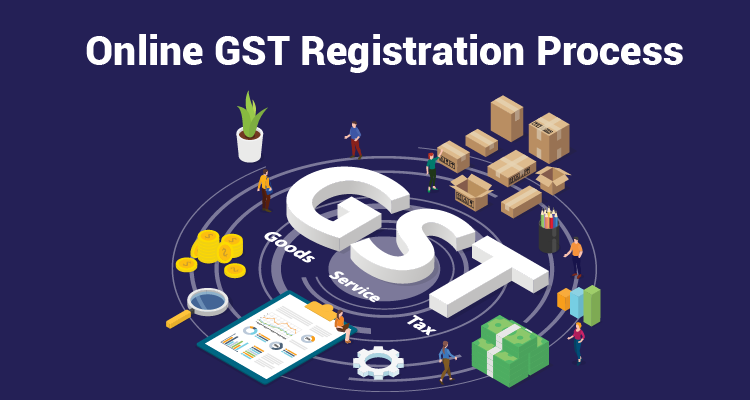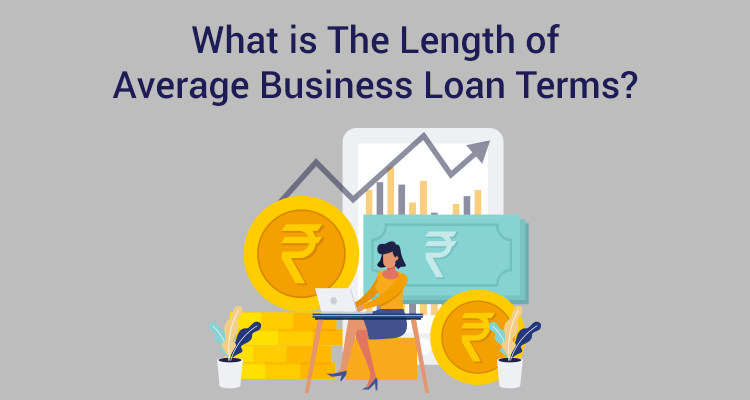Online GST Registration Process
Table of Contents
Goods and Services Tax (GST) is an indirect tax levied on the supply of goods and services in India. It was introduced on 1st July 2017 and has replaced several indirect taxes such as Value Added Tax (VAT), Central Excise Duty, and Service Tax. GST registration is mandatory for businesses whose annual turnover exceeds 40 lakhs (20 lakhs for North Eastern and hill states). Here’s how you can go through the online GST registration process.
Online GST Registration Process
Step 1:
Prepare the documents.Before starting the GST registration process, gather all the necessary documents as mentioned below.
• PAN card of the business
• Aadhaar card of the proprietor, partners, and directors
• Bank account details
• Business address proof (rent agreement, electricity bill, etc.)
• Incorporation certificate (for companies and LLPs)
Step 2:
Register your accountTo begin the GST registration process, visit the official GST portal (https://www.gst.gov.in/). Click on the "Services" tab and select "Registration" from the dropdown menu. Then, click on the "New Registration" button and select "Taxpayer (Normal)" from the options.
Next, provide your PAN number and email address to receive an OTP. Enter the OTP and complete the verification process. Once your email address is verified, you can create a username and password for your GST account.
Step 3:
Fill out the application form.Once you have created your login credentials, log in to your GST account and fill out the application form. You must provide the following details:
• Business details such as name, type, and nature of business
• Principal place of business and additional place(s) of business
• Bank account details
• Details of the authorised signatory
• GSTIN (Goods and Services Tax Identification Number) of existing tax registrations (if any)
Step 4:
Submit the application and documents.After filling out the application form, you must upload documents such as a PAN card, Aadhaar card, business address proof, and bank account details. Once you have submitted all the required information and documents, click on the "Submit" button.
Step 5:
Application Verification.GST authorities will verify your application. They will notify you through your GST account if they require any additional information. Once your application has been approved, you will receive your GSTIN (Goods and Services Tax Identification Number).
Step 6:
Activation of GSTIN.Your GSTIN is only active once you complete the activation process. To activate your GSTIN, log in to your GST account and click on the "Services" tab. Select "Registration" from the dropdown menu and then click on the "Activate GSTIN" button.
Step 7:
Pay the fees.Finally, you must pay the relevant fees to complete the GST registration process online using a debit card, credit card, or net banking. Once you disburse the payment, your GST registration process is complete, and you can start using your GSTIN.
Sapna aapka. Business Loan Humara.
Apply NowThe Eligibility Criteria For GST Registration
GST (Goods and Services Tax) registration is mandatory for all businesses that supply taxable goods and services in India. The eligibility criteria are as follows.1. Business Structure:
Businesses must be registered as a proprietorship, partnership, limited liability partnership, company, or any other legal entity recognised under Indian law.2. Annual Turnover:
Businesses with an annual turnover of up to INR 20 lakhs (INR 10 lakhs for northeastern and hilly states) are exempt from registering for GST, while businesses with an annual turnover exceeding INR 20 lakhs (INR 10 lakhs for northeastern and hilly states) must register for GST.3. Nature Of Business:
Businesses engaged in the supply of taxable goods and services are eligible for GST registration, including manufacturers, wholesalers, retailers, service providers, and e-commerce operators.4. Place Of Business:
Businesses must have a permanent place of business or a fixed establishment in India.5. Taxable Supply:
GST registration is mandatory for businesses engaged in producing taxable supplies, including intra-state supplies, inter-state supplies, and exports.6. Digital Signature Certificate:
To apply for GST registration online, the authorized signatory of the business must have a Digital Signature Certificate (DSC).7. PAN (Permanent Account Number):
The business must have a valid PAN issued by the Income Tax Department.The online GST registration process for MSMEs, or in general, is straightforward to complete. You can complete the process quickly and efficiently by following the steps outlined above. You can also contact the GST helpdesk for assistance if you encounter any issues or have any questions. It is crucial to complete the GST registration process as soon as possible to avoid any penalties or legal consequences.
Apply For A Business Loan With IIFL Finance
Applying for a business loan with IIFL Finance is a simple process. The first step is determining your loan eligibility and the loan amount you need. You can do this by using the loan eligibility calculator on the IIFL Finance website. Once you have this information, you can complete the loan application form online while submitting the required documents. Apply for IIFL Finance today.Frequently Asked Questions
Q.1: Who is eligible under GST?
Ans: You must register for GST if–
• You have an annual turnover of more than Rs. 20 lakhs in North-eastern states or Rs. 40 lakhs in others.
• Individuals who were previously registered under tax services before GST implementation.
• Non-Resident Taxable Person and Casual Taxable Person.
• Individuals who pay tax through the reverse charge mechanism.
• All e-commerce aggregators.
• Businesses with a turnover exceeding Rs.40 lakh (Rs.10 lakh in specific states).
• Input service distributors.
• Agents of suppliers.
• Individuals supplying goods through e-commerce aggregators.
• Individuals providing database access and online information to people in India who are not registered taxable persons.
Q.2: What is the minimum turnover requirement of GST registration?
Ans: GST is a tax on the act of "supplying" goods or services, and all suppliers must register for it. However, small businesses with an all-India aggregate turnover of less than Rs.40 lakh (for goods only) or Rs. 20 lakhs (for services or mixed supplies) are exempt from registering. For North-eastern states, the threshold is Rs. 20 lakhs (for goods) or Rs. 10 lakhs (for services or mixed supplies). These small businesses can voluntarily register for GST even if they are below the threshold limit.
Sapna aapka. Business Loan Humara.
Apply NowDisclaimer : The information in this blog is for general purposes only and may change without notice. It does not constitute legal, tax, or financial advice. Readers should seek professional guidance and make decisions at their own discretion. IIFL Finance is not liable for any reliance on this content. Read more




